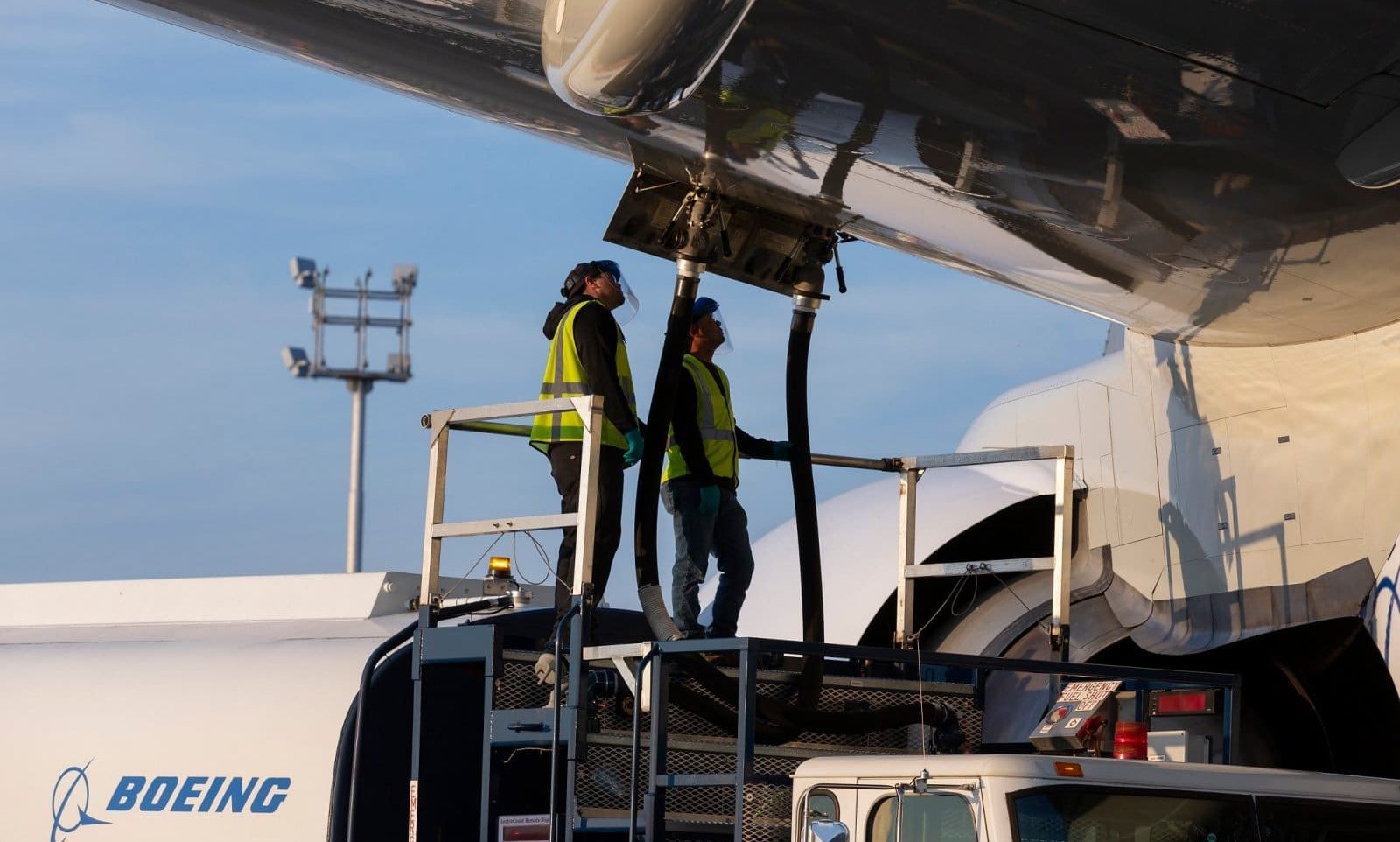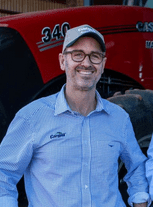
Sustainable Aviation Fuel being pumped into Boeing’s ecoDemonstrator. Photo: Boeing
BIOENERGY is shaping up as a major component of Australia’s move to net zero emissions, and will be the focus of the final panel session for the 25th annual Australian Grains Industry Conference.
Under the theme Every Grain has a Silver Lining, the conference is being held in Melbourne, and The Silver Lining – The Carbon Transition: Bioenergy and Other Opportunities panel on the second and final day, August 1, is sure to provide a well-rounded view on this burgeoning sector.
 In Australian agriculture, biofuel is grabbing the headlines, with canola shaping up as a source of locally made sustainable aviation fuel, while biodiesel is piquing interest from growers interested in lowering the carbon footprint of their inputs.
In Australian agriculture, biofuel is grabbing the headlines, with canola shaping up as a source of locally made sustainable aviation fuel, while biodiesel is piquing interest from growers interested in lowering the carbon footprint of their inputs.
Bioenergy more broadly creates options for value-adding and safe disposal of by-products from agricultural processing, and low-grade and waste straw.
Across Australia, multiple projects are already being canvassed, and include expansion of the nation’s oilseed-crushing capacity, a joint venture involving aviation giant Boeing, and the proposed Ararat Bioenergy project in Victoria.
AGIC is an initiative of Grain Trade Australia and the Australian Oilseeds Federation, and GTA CEO Pat O’Shannassy said interest in bioenergy, particularly as sourced from oilseeds, made this session a compelling one to include.
“This is a new and exciting aspect to the grains industry that we felt belonged in the 2024 program, and we’re delighted to have our panelists available to discuss where we’re at and what’s on the horizon,” Mr O’Shannassy said.
Taking part in AGIC 2024’s final panel session will be Bioenergy Australia chief executive officer Shahana McKenzie, Cargill’s Asia-Pacific environmental markets and sustainability director Ben Fargher, ANZ head of agribusiness and emerging insights Mark Bennett, and HFW Australia partner Ruth Dawes.
From the finance perspective, ANZ is already seeing sustainability metrics factoring into loan arrangements for clients of all sizes, including Ingham’s, which in May transitioned its ANZ borrowings to a sustainability linked loan.

Cargill’s Ben Fargher.
In Australia and globally, Cargill is making progress towards reducing emissions in areas including sea freight.
“Cargill’s global commitment to climate action spans our entire business and globally, the bioenergy market is playing a decisive role in shaping a low-carbon future,” Mr Fargher said.
“We see opportunities throughout the supply chain developing for human-consumption and industrial markets, as evidenced by our SustainConnect program for canola oil, and Australian canola production has an opportunity to play a role in the uptake of renewable fuels as a critical feedstock.
“We see oilseed crush plants as a key enabler to supply the emerging biofuel markets in Australia and around the world , providing a clean energy source for the future, and I look forward to being part of the panel discussion at AGIC 2024.”

Bioenergy Australia CEO Shahana McKenzie.
In addition to her role as the CEO of Bioenergy Australia, Ms McKenzie has led the creation of industry groups which include the Cleaner Fuels Alliance and the Sustainable Aviation Fuel Alliance of Australia and New Zealand.
In a joint media release issued to coincide with the release of the 2024 federal budget on May 14, those alliances said Australia was set to become a key player in the development and deployment of low carbon liquid fuels, including renewable diesel and SAF.
“We are already considered a global hotspot given our vast agricultural might and industrial base, with the CSIRO reporting that Australia will have enough feedstock in 2025 to replace 60 percent of local jet fuel with SAF, growing to 90pc by 2050,” Ms McKenzie said in the media release.
“The immense task of decarbonising Australia’s economy would be near impossible without this urgent focus on renewable liquid fuels, given 45pc of the nation’s total energy use is from liquid fuels.”
Also on the panel is Ruth Dawes, who practices in international climate-change and nature law, and environment and planning.
She specialises in major projects including sustainability precincts and renewables, and advises on dealings with planning and environmental authorities in relation to environmental compliance.
Grain Central: Get our free news straight to your inbox – Click here

HAVE YOUR SAY